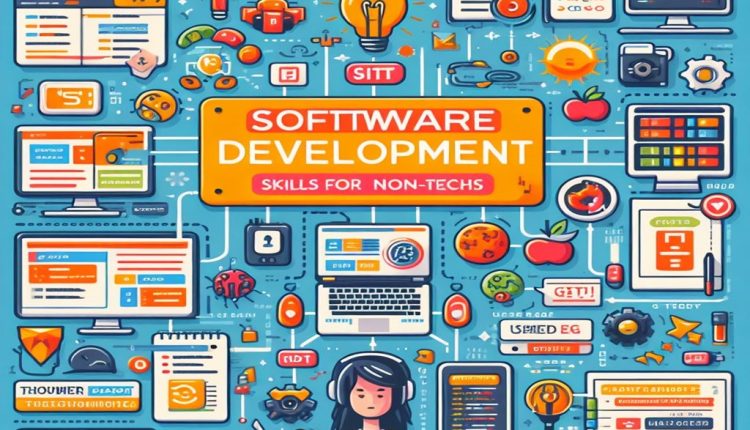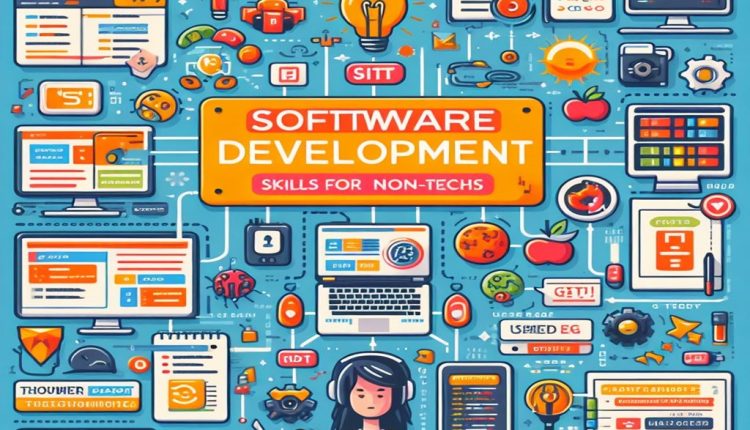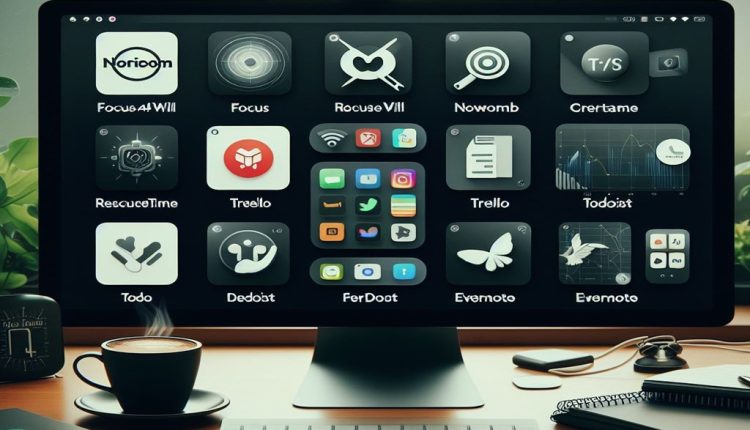Essential Software Development Skills for Non-Techs
Software development is a highly sought-after skill in today’s job market, but it is not just for programmers. Non-technical professionals can benefit greatly from acquiring software development skills, whether they are beginners or looking to expand their knowledge.
In this section, we will explore essential software development skills for non-technical professionals, including software development for beginners and training resources for continuous learning.
By honing your software development skills, you can navigate the tech world with confidence and make valuable contributions to software development projects.
Join us on this journey to discover how you can enhance your software development skills and elevate your professional growth!
Software development skills for non-technical professionals, software development for beginners, and software development training for non-technical professionals are the focus of this informative section.
Understanding the Basics of Software Development
Software development can be a complex field, but having a basic understanding of its terms and concepts is essential for non-technical professionals. The following are some key terms and concepts you should be familiar with:
Programming languages
A programming language is a set of instructions used to create computer programs. Common programming languages include Java, Python, and C++.
Code repositories
A code repository is a storage location that hosts the source code of a software project. Git and GitHub are popular code repository tools.
Development environments
A development environment is a software application that provides a platform and tools for developing, testing, and debugging software. Examples of development environments include Visual Studio and Eclipse.
Version control
Version control is the process of managing changes to the source code of a software project. Git and SVN are popular version control tools.
Debugging
Debugging is the process of finding and fixing errors in software code. Debugging tools such as Visual Studio Debugger and PyCharm can help identify and resolve issues in code.
By understanding these basics of software development, non-technical professionals can communicate more effectively with their technical colleagues and gain a better understanding of the software development process.
Learning Coding Skills for Non-Technical Professionals
In today’s tech-driven world, coding skills are highly sought after in the software development industry. As a non-technical professional, learning how to code may seem daunting at first, but it is a valuable skill that can significantly enhance your career growth.
Fortunately, there are many resources available to help non-techs learn to code. Online courses like Codecademy and Udemy offer affordable and convenient options for beginners. Bootcamps and workshops are also available for those who prefer hands-on learning experiences.
The benefits of learning to code go beyond just being able to write software programs. It teaches you problem-solving skills, improves your logical thinking abilities, and enhances your attention to detail. With coding skills, you can work more effectively with technical colleagues, develop better products, and gain a competitive edge in today’s job market.
Even with just basic coding skills, you can contribute to software development projects in ways that were not possible before. You can communicate your ideas more effectively, understand technical documentation, and collaborate with developers better.
So, while coding may seem intimidating at first, it is a skill worth pursuing for non-technical professionals looking to expand their knowledge and increase their value in the software development industry.
Non-Technical Skills for Successful Software Development
Software development requires more than just technical expertise. As non-technical professionals enter the industry, they need to possess certain non-technical skills to contribute to the success of a project. These skills are highly sought after in the software development industry, and having them can set professionals apart from their peers.
Effective Communication
Clear and concise communication is essential in any software development project. As a non-technical professional, it is crucial to be able to effectively communicate with technical team members and stakeholders. This includes active listening, asking relevant questions, and presenting ideas concisely.
Project Management
Having strong project management skills can help non-technical professionals navigate complex software development projects. This includes setting goals, establishing timelines, and determining resource needs. Effective project management also involves determining budgets, forecasting potential roadblocks, and working with the technical team to adjust timelines and resource utilization.
Critical Thinking
Problem-solving is a vital skill in software development, and non-technical professionals must hone their critical thinking skills to help teams overcome roadblocks and challenges. This includes identifying errors in coding, troubleshooting technical issues, and adopting solutions that align with the project’s goals.
Collaboration
Software development is often a team effort, and the ability to collaborate effectively with team members is vital. Non-technical professionals must be able to work in a team setting, communicate with others, and work collaboratively to solve problems.
Having these non-technical skills can make a significant difference in contributing to the success of a software development project, and non-technical professionals must continue to develop these skills to stay competitive in the industry.
Acquiring Software Development Skills: Training and Resources
Now that you understand the essential software development skills and have a basic understanding of coding, it’s time to explore the various options available to acquire these skills. Fortunately, there are countless resources and training options for non-technical professionals to learn software development.
One of the most popular ways is by taking online courses. Many websites offer comprehensive courses on software development for beginners, including Codecademy, Udacity, and Coursera. These online courses are self-paced and allow you to learn at your speed, making it perfect for busy professionals.
Another option is attending workshops or boot camps. Many coding boot camps are designed specifically for non-technical professionals, such as General Assembly and Flatiron School. These typically last a few months and provide intensive training in coding and software development.
Finally, consider attending industry conferences and networking events. These are great opportunities to learn about the latest trends and developments in software development while meeting other professionals in the field. Additionally, attending these events can provide valuable insights into what skills are in high demand and where the industry is heading.
By utilizing these resources, you can acquire valuable software development skills and become a more competitive candidate in the job market. Remember to take your time, practice consistently, and never stop learning.
FAQ
What are the essential software development skills for non-technical professionals?
The essential software development skills for non-technical professionals include project management, communication, problem-solving, and analytical thinking. These skills are crucial for successful collaboration within software development teams and ensuring the smooth execution of projects.
How can beginners learn software development?
Beginners can learn software development through various channels such as online courses, tutorials, books, and hands-on projects. It is recommended to start with learning the basics of programming languages like Python or JavaScript and gradually build upon that foundation by exploring different software development concepts and technologies.
Are coding skills necessary for non-technical professionals in software development?
While coding skills are not always mandatory for non-technical professionals in software development, having a basic understanding of coding can greatly benefit their career growth. It allows them to communicate effectively with technical team members, understand the development process, and contribute more meaningfully to software projects.
What are the non-technical skills that are important in software development?
Non-technical skills that are important in software development include critical thinking, problem-solving, time management, adaptability, and teamwork. These skills complement the technical expertise of software developers and contribute to the overall success of software projects.
What training and resources are available for non-technical professionals to learn software development?
Non-technical professionals can explore various training options, including online courses, boot camps, workshops, and mentoring programs, to learn software development. Additionally, resources such as coding tutorials, documentation, and forums provide valuable self-learning opportunities for individuals looking to acquire software development skills.








